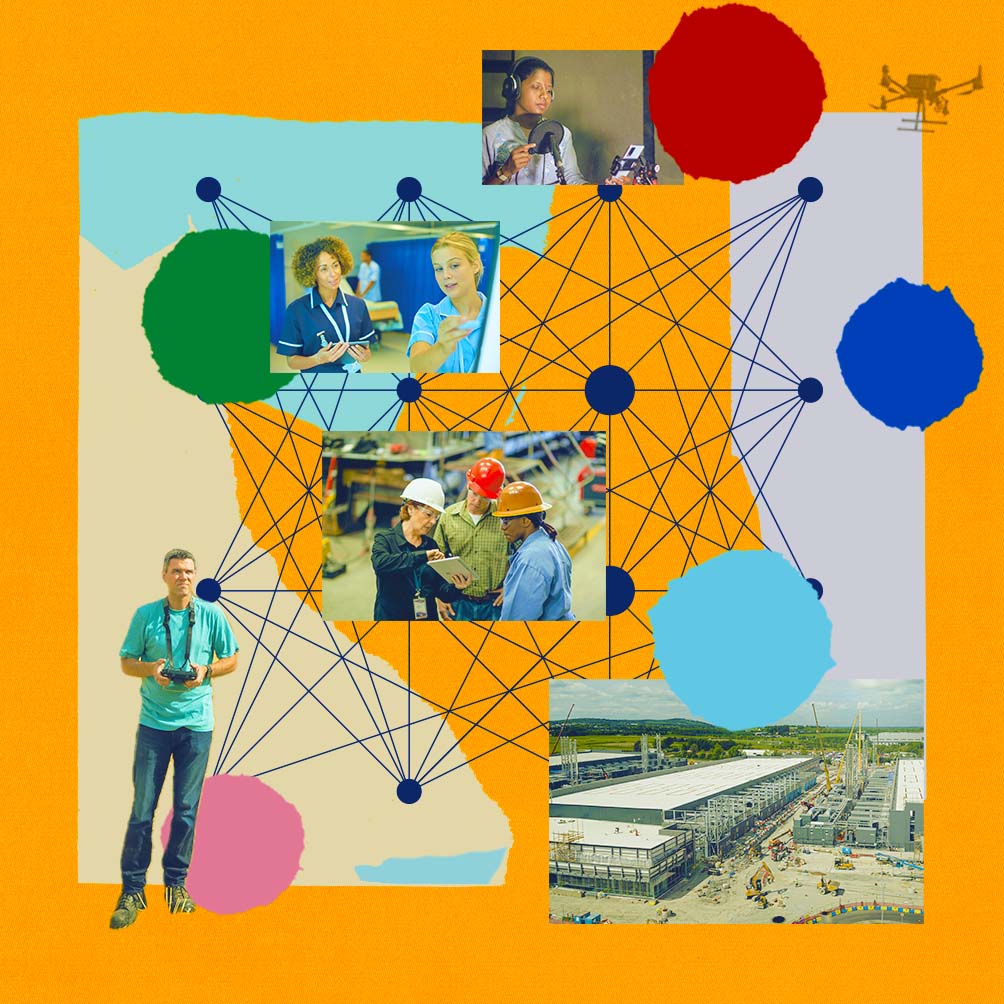What is Microsoft’s approach to AI?
At Microsoft, we believe artificial intelligence (AI) is the defining technology of our time.
We have been on the forefront of cutting-edge research in AI and integrating these powerful, innovative AI technologies into our products and services to help customers do more. Microsoft AI, powered by Azure, provides billions of intelligent experiences every day in Windows, Xbox, Microsoft 365, Teams, Azure AI, Power Platform, Dynamics 365 and Microsoft Defender.
Our AI tools and technologies are designed to benefit everyone at every level in every organization. They are used in workplaces, home offices, academic institutions, research labs and manufacturing facilities around the world, and they are helping everyone from scientists and salespeople to farmers, software developers and security practitioners.
We have made huge investments in AI because we are optimistic about what it can do to help people, industry and society, and because we’re committed to bringing technology and people together to realize the promises of AI responsibly.

Our approach to using AI responsibly
Microsoft believes that when you create powerful technologies, you also must ensure that the technology is developed and used responsibly. We are committed to a practice of responsible AI by design, guided by a core set of principles: fairness, reliability and safety, privacy and security, inclusiveness, transparency and accountability.
Microsoft is putting these principles into practice across the company to develop and deploy AI that will have a positive impact on society.
“With the right guardrails, cutting-edge technology can be safely introduced to the world to help people be more productive and go on to solve some of our most pressing societal problems,” says Natasha Crampton, the chief responsible AI officer at Microsoft.
AI systems are the product of many different decisions made by those who develop and deploy them. From system purpose to how people interact with AI systems, we need to guide these decisions toward beneficial and equitable outcomes.
“That’s what our practice of responsible AI by design is all about,” Crampton says. “We ensure that responsible AI considerations are addressed at the earliest stages of system design and then throughout the whole lifecycle, so that the appropriate controls and mitigations are baked into the system being built, not bolted on at the end.”
This approach does not eliminate all risks, and a commitment to listening, learning and improving is paramount. But it does encourage developers to be clear about any limitations, account for intended uses and potential misuses, and think expansively about how to secure the benefits of a system and guard against its risks.
We believe proactive, self-regulatory efforts by responsible companies help pave the way for these new laws, but we recognize that not all organizations will adopt responsible practices voluntarily.Microsoft believes democratic, law-making processes are a vital part of a global dialogue with industry, academia and civil society to create principled and actionable norms that ensure organizations develop and deploy AI responsibly.
As part of this process, we are committed to publicly sharing the company’s learnings and best practices, along with the tools that guide our efforts. This includes our Responsible AI Standard, a framework for translating our high-level principles into actionable guidance for our engineering teams.
Like all transformative technologies, we are aware that AI has its risks. Some people will use this technology to exploit the flaws in human nature, target people with false information, undermine democracy and cause harm. We need to plan for and mitigate these risks.
Microsoft has been working on its cross-company, cross-discipline, responsible AI effort for more than six years, creating a strong foundation upon which to keep building for the future. We are clear-eyed about the need to continue moving forward with urgency to keep pace with the rapid evolution of technology and changing societal expectations.
“Fundamentally, our AI work is grounded in our company mission to help every person and organization on the planet to achieve more,” says Crampton, “and it is undergirded by our steadfast commitment to the responsible development and use of AI.”